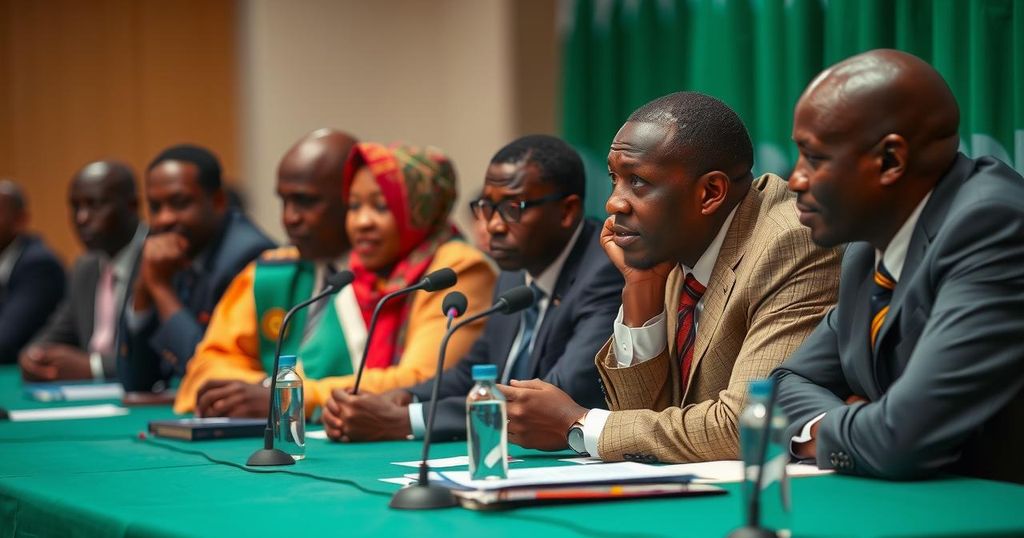South Sudan’s Path to Peace: Will 2025 Bring Hope and Stability?
As South Sudan heads into 2025, hopes for peace are dimmed by the adjournment of the Tumaini process, leaving unresolved issues that could further exacerbate instability. With the population heavily reliant on humanitarian aid, the urgent need for dialogue, leadership, and accountability persists. Civil society’s role, alongside international pressure, remains critical in navigating the path toward genuine peace and stability in the nation.
As South Sudan approaches the end of 2024, the anticipated peace has been further jeopardized by the adjournment of the Tumaini peace process. This delay raises serious concerns regarding the feasibility of achieving lasting peace in South Sudan during 2025 amidst a backdrop of prolonged conflict and instability. The Tumaini process aimed to address crucial issues such as the unification of armed forces and constitutional reforms, yet these key matters remain unresolved owing to entrenched political divisions and distrust among leaders. The growing frustration among citizens, evidenced by the fact that nearly 75 percent of the population depends on humanitarian aid, highlights the urgent need for a renewed commitment to peace.
South Sudan has faced relentless challenges since gaining independence, marked by civil wars and severe humanitarian crises. The Tumaini peace process was introduced to create a framework for dialogue and reconciliation. Its adjournment signals a critical juncture in addressing the persistent political gridlock that has hindered meaningful progress. The situation calls for intensified efforts from South Sudanese leaders and international partners to facilitate a peaceful resolution and restore public faith in the peace process. The advocacy by civil society and youth organizations underscores the vital role of inclusive participation in forging a path towards stability.
In conclusion, while the road to peace in South Sudan is fraught with challenges, the potential for progress remains. Effective leadership, accountability, and international support are imperative to ensure that 2025 can become a transformative year for the nation. With collective action and trust-building, South Sudan may yet realize the stability and prosperity it desperately seeks for its citizens. The pursuit of peace must prioritize the welfare of all South Sudanese, fostering hope for future generations.
Original Source: www.radiotamazuj.org




Post Comment